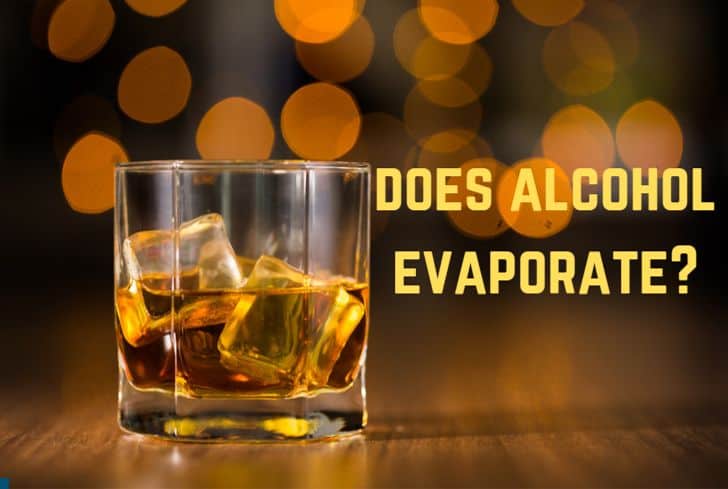Beer, wine, and spirits are co-conspirators in one of the kitchen’s biggest myths. It’s widely believed that dishes made with alcohol are rendered non-alcoholic in the process of, say, simmering a beurre blanc sauce or baking a bourbon pecan pie. In reality, no matter how long it is sauteed, broiled or boiled, a recipe can never be fully rid of its alcohol.
As a substance, alcohol is volatile, explains Harold McGee, author of On Food and Cooking: The Science and Lore of the Kitchen. Its molecules will evaporate not just when alcohol reaches its boiling point, a chilly 173 degrees Fahrenheit compared to water’s 212 degree Fahrenheit boiling point, but any time it is exposed to the air.
Despite its ability to dissipate, “it’s impossible to cook out all of the alcohol [in a dish],” says McGee. Even after extensive heating, a small proportion of its molecules will remain bonded to molecules like water present in the mixture. How much sticks around depends on several factors, including the recipe’s other ingredients, the temperature it is cooked at and the length of time for which it is cooked.
“The higher the temperature, the quicker the evaporation,” McGee explains. “The longer the cooking time, the greater the cumulative evaporation.”
According to the U.S. Department of Agriculture (USDA), baked or simmered dishes that contain alcohol will retain 40% of the original amount after 15 minutes of cooking, 35% after 30 minutes and 25% after an hour. But there’s no point at which all of the alcohol disappears. Baking or simmering an alcohol-containing dish for 2.5 hours will still leave 5% of the alcohol content behind.
The science: Alcohol does partially evaporate during cooking, but not as much as you might think. Depending on the cooking method and how much alcohol is used, anywhere from 4 to 85 percent of the alcohol may remain. After 15 minutes of cooking, about 40 percent of the alcohol remains.

The Variables & Results
One thing the USDA’s chart doesn’t take into account is the size of the pan in which the alcohol is cooked. “The greater the surface area, the greater the exposure of the alcohol molecules to the air, the faster they will escape,” says McGee. So, there will be less alcohol in a beurre blanc sauce simmered in a large stockpot than one simmered in a small saucepan; mini bourbon pecan pies will be more alcoholic than a single large pie.

Mussels with beer photo by Alana Harris on Unsplash
Exactly how alcoholic the 40% or 25% or 5% of alcohol leftover in a dish after cooking directly depends on the ABV, the alcohol by volume, of the liquor used. When cooked at the same temperature, for the same period of time, in the same sized pot, the alcohol molecules in beer and rum will evaporate at the same rate. However, beer typically has an ABV that ranges from 3.5% to 9%, while the ABV of rum is typically around 40-75.5%. Consequently, even when all other conditions are the same, the completed dish will be less alcoholic when made with beer than that when made with rum.
Although alcohol remains, it’s highly unlikely that dishes cooked with alcohol will cause intoxication. The amount of wine, beer, or spirits found in most recipes is so small that, even if left uncooked, an adult would never feel its effects. Still, an alternative might be preferable when preparing food for children, pregnant women or those in recovery.

Does Alcohol Really Burn Off When Cooked?
FAQ
How much alcohol evaporates during cooking?
|
Time Cooked at Boiling point of alcohol
|
Approximate Amount of Alcohol Remaining
|
|
15 minutes
|
40 percent
|
|
30 minutes
|
35 percent
|
|
One hour
|
25 percent
|
|
Two hours
|
10 percent
|
Does cooking get rid of all alcohol?
Does alcohol always burn off in cooking?
Is alcohol still present when cooked?
Does alcohol evaporate during cooking?
Alcohol does partially evaporate during cooking, but not as much as you might think. Depending on the cooking method and how much alcohol is used, anywhere from 4 to 85 percent of the alcohol may remain. After 15 minutes of cooking, about 40 percent of the alcohol remains.
Does alcohol burn off during cooking?
She responded that there was nothing to worry about—during cooking the alcohol burns off. Luckily, he opted to leave. It is true that some of the alcohol evaporates, or burns off, during the cooking process. “Some” being the operative word. Exactly how much depends on many factors.
Can you cook with alcohol?
It’s okay to cook with alcohol when serving sober guests, children and pregnant women because the alcohol burns off during cooking. Alcohol does partially evaporate during cooking, but not as much as you might think. Depending on the cooking method and how much alcohol is used, anywhere from 4 to 85 percent of the alcohol may remain.
Does alcohol evaporate before boiling?
The answer is no. It’s true that alcohol boils at a much lower temperature than water (173 degrees Fahrenheit compared with 212 degrees Fahrenheit), so in a sauce, for example, the alcohol will begin to evaporate before the water does. But simply heating the alcohol (or any other cooking liquid, for that matter) will not make it all evaporate.
